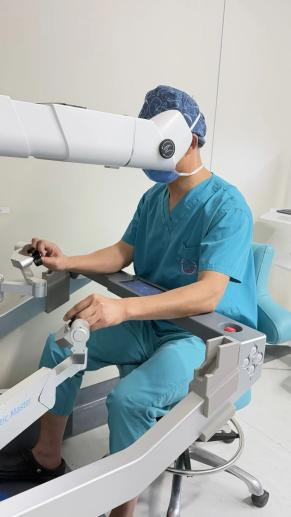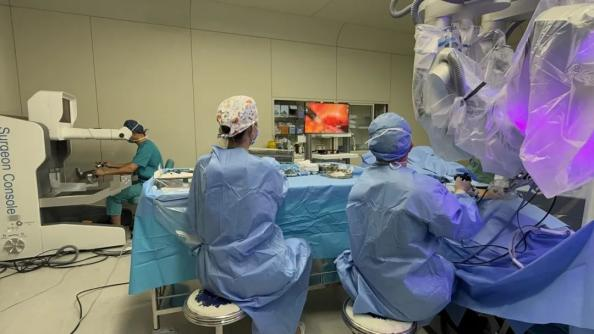

On June 11, Peking University Shougang Hospital completed its first radical cystectomy using the SHURUI® single-port robotic system—a major leap in minimally invasive urologic oncology. Led by Dr. Gang Wang, the surgical team successfully performed a total bladder removal and intracorporeal ileal conduit reconstruction in a 62-year-old bladder cancer patient with challenging pelvic anatomy.
The SHURUI® surgical system’s flexible snake-like instruments enabled high-precision dissection and suturing in a confined space, through a single small incision. The procedure minimized trauma and blood loss, allowing the patient to ambulate the next day.
This landmark case demonstrates the transformative potential of domestic single-port robotic technology in complex pelvic surgeries. It also reflects the alignment of top-tier clinical expertise with China’s innovation-driven healthcare strategy—bridging AI-powered surgical tools with real-world outcomes, and propelling the future of ultra-minimally invasive surgery.



 Important Notes
Important Notes
The SHURUI Single-port Endoscopic Surgical System (SR-ENS-600), developed and produced by Beijing Surgerii Robotics Company Limited, has obtained the CE marking for urologic laparoscopic surgical procedures, gynecologic laparoscopic surgical procedures, general laparoscopic surgical procedures, and thoracoscopic surgical procedures. It is intended for use by trained surgeons in an operating room environment in accordance with the representative, specific procedures set forth in the User Manual.
Safety and Performance Information
Beijing Surgerii Robotics Co., Ltd. owns Surgerii®, SHURUI®, and other trademarks and may not be used without permission.